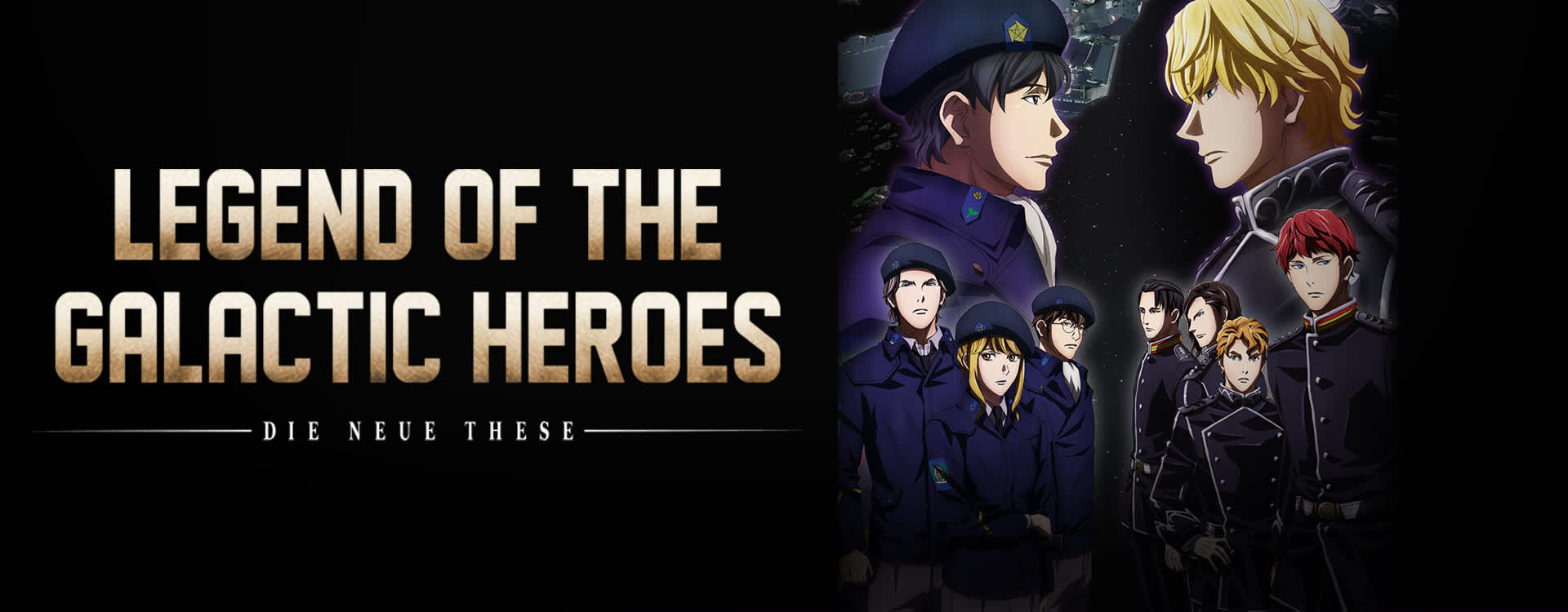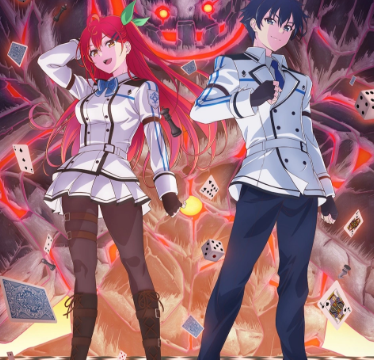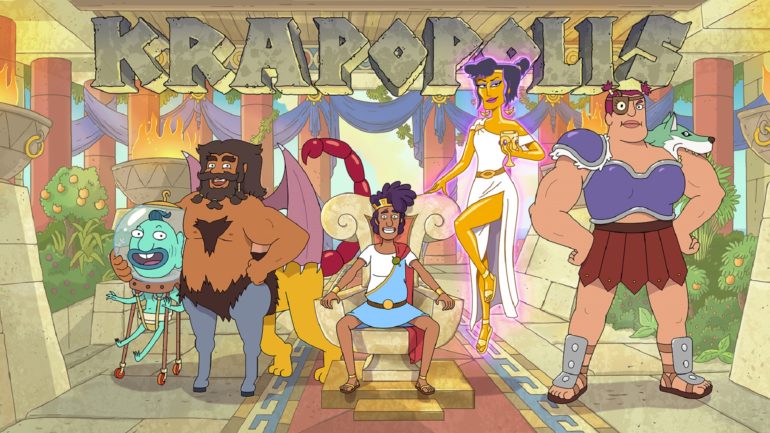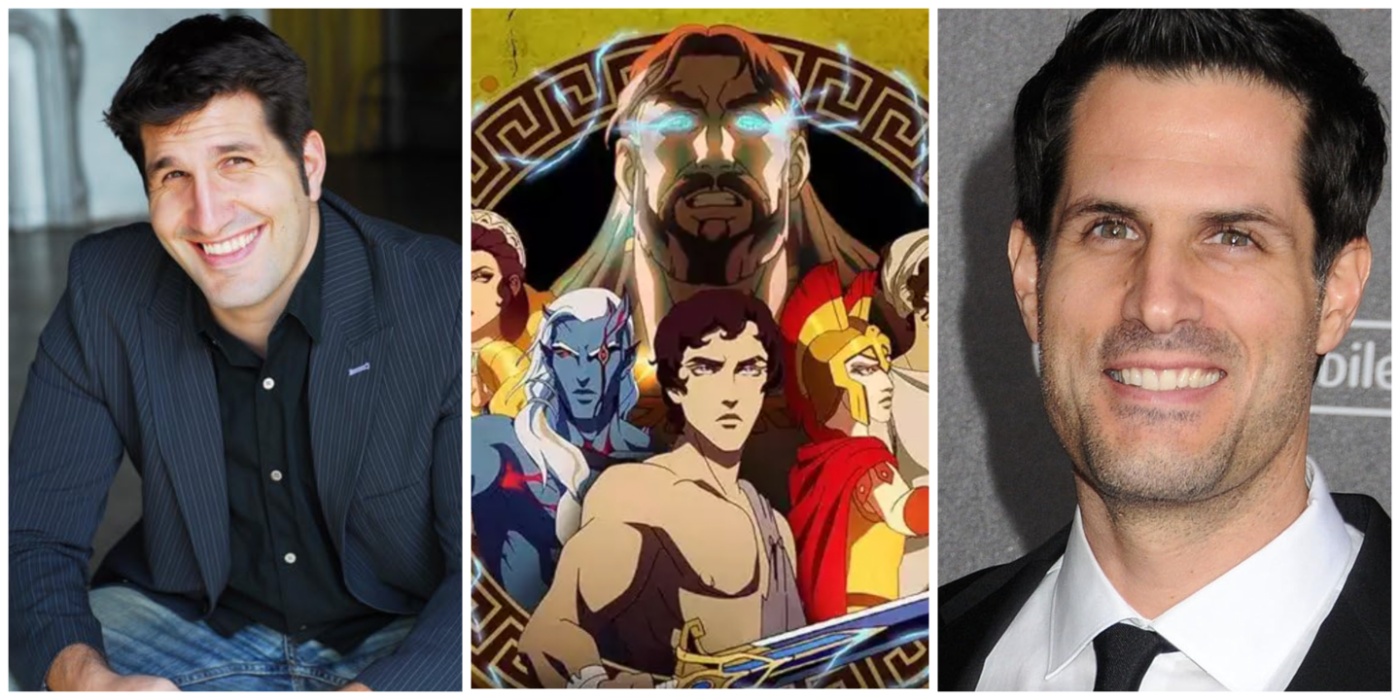English Dub Review: Legend of the Galactic Heroes: Die Neue These, “The Battle of the Doria Starzone”
Overview (Spoilers Below)
Yang advances his fleet to meet with the Alliance military regime in a battle of friendly fire. Tensions between the regime and the citizens reach a tipping point.
Our Take
We shift back to revolution occurring within the Alliance, as Yang goes to confront the newly self-installed military regime. Julian admires Yang, commenting that one day Yang will be written into the history books that he so admires. Yang responds with weary humility, noting how he does not recognize himself in his historical account.
They go to liberate a planet from the regime, to great success with little bloodshed. The scene of this liberation ends as soon as it begins, with a quick and peaceful end that Yang so desires.
In the afterglow of this victory, an officer from the regime named Baghdash arrives to alert Yang that a regime-operated Alliance fleet is headed their way. Appropriately suspicious of this sudden boon, Schonkopf investigates Baghdash. What he finds is that Baghdash is indeed a rat from the regime, but one that may perhaps turn his colors as it suits him.
Regardless, the validity of this information is confirmed and they meet the fleet in battle. Yang’s usual tactical genius wins them the day handily and this battle is also over relatively quickly. But this victory comes at a heavier price. The ships of the regime do not surrender at all, continuing to fight despite their inevitable defeat to the discomfort of Yang’s fleet. When the regime commander finally surrenders, he does so by taking his own life in solidarity with his cause.
Immediately after this sour victory, Baghdash puffs up and makes outlandish demands as their “savior.” Despite the preceding bloodshed, Yang humors Baghdash. Yang allows him the chance to show that he’s truly been convinced to stay on Yang’s side. This scene brilliantly contrasts Baghdash with the regime commander that he just sentenced to death. A man who stays true to his ideals even in the face of death; a man who morphs his ideals to save his skin.
Yang accepts Baghdash’s rationale and surprises him by allowing him to carry a weapon. As soon as he receives it, Baghdash immediately aims it at Yang’s head, making his intentions unclear. Seeing Yang unfazed and confident, he relents, putting the gun away and choosing his side. Baghdash seemed the kind of soldier Yang would detest. But instead, Yang seems to be content with Baghdash’s pragmatism, which may also make Yang something of a pragmatist himself.
However, Julian happened to have witnessed this and immediately scolds Baghdash’s behavior, asking that Yang reprimand him. Yang diffuses the situation and Baghdash is allowed to leave. Julian rejects Yang’s decision and questions him. Yang simply states that as long as he keeps winning, he can be assured of the loyalty of people like Baghdash. At the time, this seemed like a show of confidence. But in retrospect, after what happens next, it may have actually been something closer to melancholy.
At the capital of the Alliance, thousands of citizens assemble at a sports stadium to protest the martial law of the military regime, with Jessica Edwards unsurprisingly at the helm. The regime then barges in fully armed. A haughty regime officer emerges and rounds up citizens to make an example of them. He’s a man who takes a little too much pleasure in this, the sort who is glad about the rise of a military regime. He asks if Jessica is behind this, to which the citizens feign ignorance. The officer responds by summarily beating a man into shock.
Jessica then arrives at the scene, making her stand and confronting the solider with words. When speech fails to stay the officer’s hand, Jessica tries to stop him with force and is met with force herself. Lying on the ground bleeding from the head, she launches virulent rhetoric at the officer, comparing him and the regime to the previous Galactic Emperor, who the regime themselves hails as a villain. This sort of dialogue, which tries to highlight history in an attempt to prevent it from being repeated, as been seen in this show before. But the previous exchanges have clearly failed as this one occurs amid violence.
The officer responds with rage and beats Jessica to death. Seeing their leader fall, the composure of the citizens crumbles and they violently turn on the soldiers, stealing their weapons and firing. The result is a full-on massacre. The leaders of the regime receive this news and are disturbed; this seems to be the first time they are truly doubting their efficacy.
Until the very end, the scene of this riot-turned-massacre plays out with no indication of civil or social grandeur. It doesn’t completely favor the resisting peaceful citizens and remains mostly rooted in objectivity. It is only after showing Jessica’s corpse lying in cold blood that it adopts a somber, empathetic tone. This moment of allowing both sides to justify themselves gives the tragedy that follows its impact.
Yang’s fleet does not receive this information until it is far too late to respond to it. Though it seemed despair would have gripped the ship, the crew remains stalwart. This is perhaps due to how Yang reacted, hiding his expression with sunglasses. While seeing a down-to-earth man like Yang walk around indoors with sunglasses might make one chuckle, the expression is entirely serious. What face he makes underneath the visor is kept a mystery. I personally believe it is one of anger, something he has never truly shown before, which he wants to hide so as not to incite his crew to anger themselves.
The strength of this anime is in the inherent empathy beneath the frame of an impartial historical account. The characters are but pieces on the chessboard of war, but they are afforded their names and their humanity. This episode is the apex of that, putting faces to statistics that we feel the weight of the numbers.
























I hope it's not Crunchyroll; if they really cared about the franchise much, Volume 10 would have already been announced a long time ago.